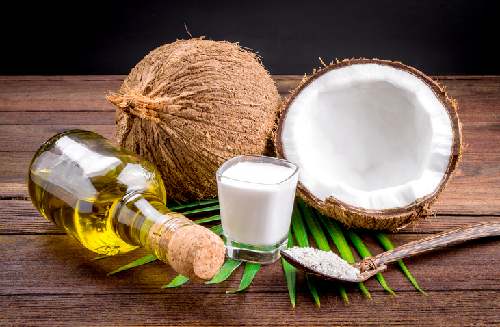 Gingivitis, also called periodontal disease, is a mild type of gum infection. According to the Centers for Disease Control and Prevention, 47.2% of American adults have periodontal disease, and 70.1% of adults aged 65 or older have periodontal disease (1).
Gingivitis, also called periodontal disease, is a mild type of gum infection. According to the Centers for Disease Control and Prevention, 47.2% of American adults have periodontal disease, and 70.1% of adults aged 65 or older have periodontal disease (1).
Gingivitis is a tissue infection of the gums, or gingiva. The tissues become inflamed and begin to degenerate, and if left untreated, gingivitis can lead to further bone and connecting tissue damage called periodontitis.
Luckily, there are home remedies for gingivitis and periodontitis, which will be detailed later.
Types of Gingivitis/Gum Disease
In periodontitis, plaque will, over time, grow behind the gum line. Bacteria produce toxins in the plaque, which irritates the gums. The gums recede, exposing more of the tooth, which leads to more plaque and bacteria exposure. The tooth can eventually separate from the gums. The following is a brief overview of the various types of gum disease:
1.Chronic periodontitis:
This condition leads to inflammation of the supporting tissues, progressive detachment, and bone loss. It’s the most common form of periodontitis.
2.Aggressive periodontitis:
This type of periodontitis is found in people who appear healthy, but are experiencing familial aggregation, bone destruction, and rapid attachment loss.
3.Necrotizing periodontal disease:
In this infection, necrosis of the alveolar bone, periodontal ligament, and gingival tissues occurs. This type of periodontal disease is common in those with malnutrition, a poor immune system, and HIV infection.
4.Acute necrotizing ulcerative gingivitis (ANUG):
ANUG is another form of gingivitis. It’s a rare form that occurs in people with severe malnutrition or an impaired immune system. Symptoms include bad breath, painful gums, and a fever.
Symptoms of Gingivitis
Red, tender, soft, inflamed, and swollen gums are often the first symptoms associated with gingivitis. Other symptoms include:
- Sensitive gums that easily bleed when you brush your teeth or floss;
- Receding gums where the lower parts of teeth become exposed;
- Bad breath or a bad metallic taste in the mouth;
- Pain while chewing;
- A loose tooth or teeth; and
- Pus between the gums and teeth.
Root Causes and Risk Factors of Gingivitis
Poor dental hygiene is thought to be the number-one cause of gingivitis and gum disease. In this case, the environment of the mouth allows for bacterial overgrowth. The following are other roots causes of gingivitis:
- Smoking;
- Hormonal changes during pregnancy or menopause;
- Stress;
- Fungal or viral infections such as oral thrush;
- Low immunity, including conditions such as diabetes, cancer, and HIV/AIDS;
- Poor-fitting dental restorations;
- Nutritional deficiencies such as vitamin C, folic acid, zinc, coenzyme Q10, or a flora imbalance;
- Food sensitivities or allergies; and
- Medications, including birth control pills, steroids, and anti-seizure, as well as those for cancer, blood pressure, and reducing saliva.
Other factors that contribute to gingivitis include genetic predisposition, anemia, leukemia or other disorders of white blood cell function, and substance abuse such as alcohol or recreational drugs.
10 Home Remedies for Gingivitis
Do you want to know how to get rid of gingivitis? Regular brushing and dentist checkups are a good place to start. Severe gingivitis may require antibiotics and a consultation with your doctor. Can you get rid of gingivitis without the use of drugs? Yes, you can. There are several home remedies for receding gums and other symptoms of gingivitis and gum disease. The following are home remedies for periodontitis and gingivitis gum infection.
1. Salt Water

Use a salt water solution to rinse your mouth in the morning and at night until gum swelling has reduced.
Salt water is one of the great home remedies for gingivitis pain. You’re likely going to hear about salt water when it comes to any mouth-related problem. There’s a good reason for that. Salt is a very effective antibacterial and antiseptic remedy that can help treat inflamed and swollen gums. In addition, salt will inhibit bacterial growth in the mouth. Add a teaspoon of Celtic sea salt in a glass of warm water. Use this solution to rinse your mouth in the morning and at night until gum swelling has reduced.
2. Coconut Oil Pulling
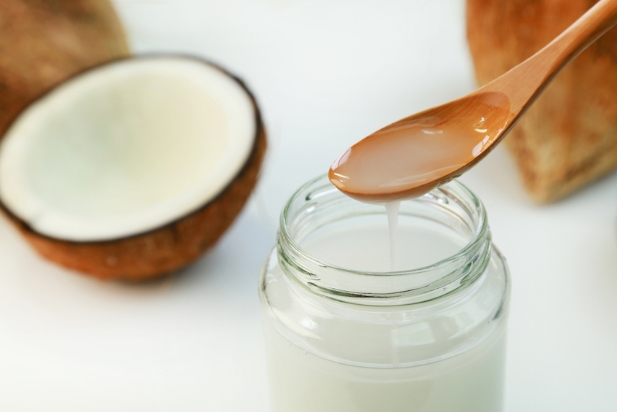
Place one tablespoon of coconut oil in your mouth, and swish it around and through your teeth for 15 to 20 minutes.
Want to know how to kill gingivitis with coconut oil pulling? Oil pulling has been keeping gums and teeth healthy for centuries. Oil pulling with coconut oil removes toxins, bacteria, and viruses in the mouth. Oil pulling improves oral health and boosts immunity as a result of detoxification. The lauric acid and caprylic acid in coconut oil make it an effective remedy against gingivitis. A study published in the Indian Journal of Dental Research in 2008 (2) found that oil pulling creates an antiseptic and clean environment in the mouth. Simply place one tablespoon of coconut oil in your mouth, and swish it around and through your teeth for 15 to 20 minutes. Spit it out, and rinse your mouth with warm water. It’s good idea to do oil pulling before brushing your teeth.
3. Turmeric
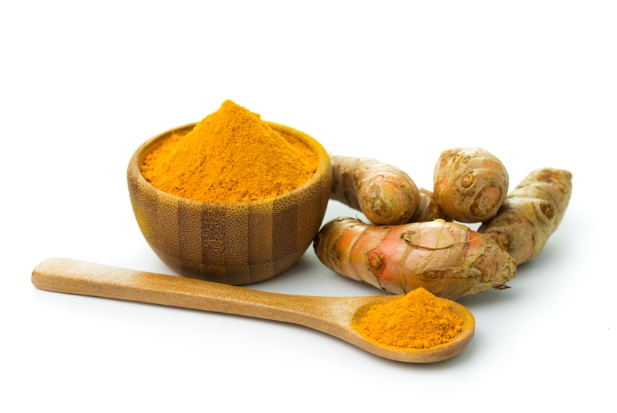
Make a paste from a teaspoon of turmeric, and a half-teaspoon of salt and mustard oil. Rub this paste on your gums twice daily.
The curcumin in turmeric contains anti-inflammatory and antioxidant effects. Curcumin is thought to effectively reduce swelling, pain, plaque, and inflammation of the gums. In a study published in the Journal of Contemporary Dental Practice in 2011 (3), researchers found that a turmeric mouthwash was an effective treatment to control and prevent plaque and gingivitis. The anti-inflammatory, antimicrobial, and anti-plaque properties in turmeric mouthwash are comparable to a traditional chlorhexidine mouthwash. It’s also a good idea to make a paste from a teaspoon of turmeric, and a half-teaspoon of salt and mustard oil. Rub this paste on your gums twice daily.
4. Lemon Juice
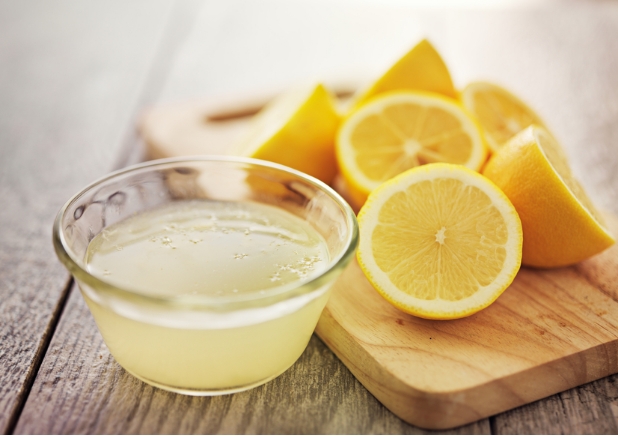
Mix the juice of one lemon in a glass of warm water, and use it as a mouthwash after brushing your teeth.
The anti-inflammatory and antibacterial properties of lemons can help treat gum disease. Lemon can kill bacteria, and the acid from lemon juice can strengthen the gums and dissolve plaque. Mix the juice of one lemon in a glass of warm water, and use it as a mouthwash after brushing your teeth. Using it twice daily can help soothe receding gums and bleeding.
5. Baking Soda
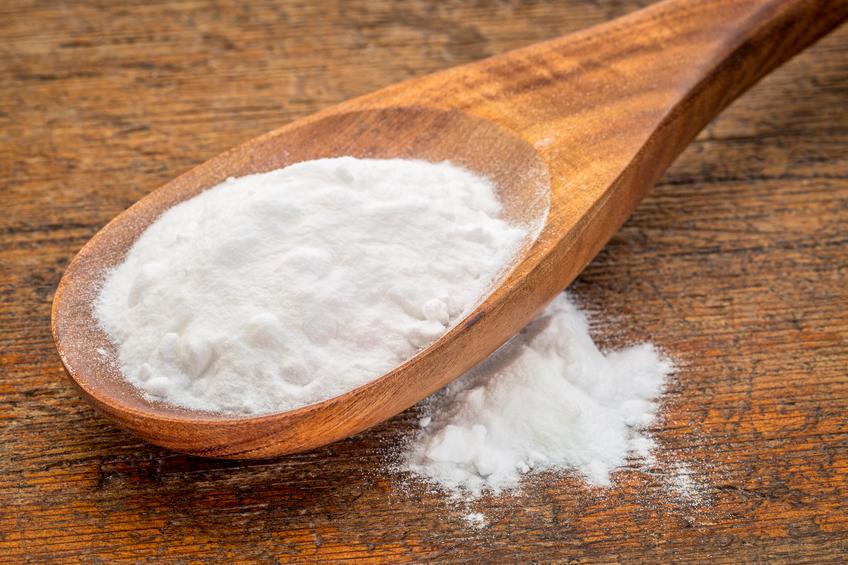
Mix a quarter-teaspoon of baking soda with some warm water. Use it on the gums for one or two minutes before rinsing with warm water.
Baking soda is a popular and simple home remedy in the treatment of gingivitis, and makes for a good alternative to toothpaste. Baking soda will reduce gum disease and tooth decay by neutralizing the acids in the mouth. It’s also a natural antiseptic that can help prevent infection. To make baking-soda toothpaste, mix a quarter-teaspoon of baking soda with some warm water. Use it on the gums for one or two minutes before rinsing with warm water. This baking soda treatment should be used two to three times weekly.
6. Guava Leaves
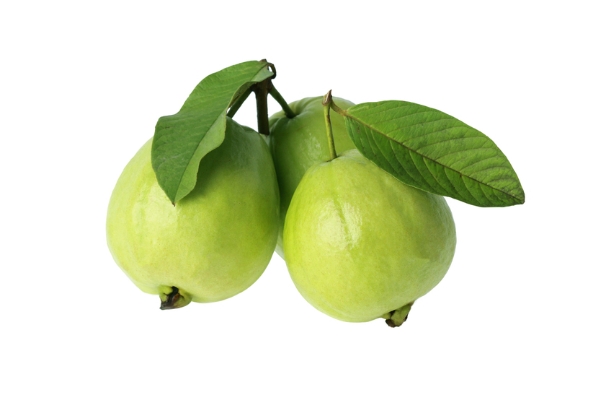
For a natural guava leaf remedy, rinse and clean a few guava leaves, chew them, and spit them out.
Guava leaves contain antibacterial, anti-inflammatory, analgesic, antimicrobial and antioxidant properties that help fight gingivitis. For a natural guava leaf remedy, rinse and clean a few guava leaves, chew them, and spit them out. It’s a good idea to do this twice a day for a few weeks minimum. You can also grind up a few guava leaves and use them as toothpaste.
7. Aloe Vera
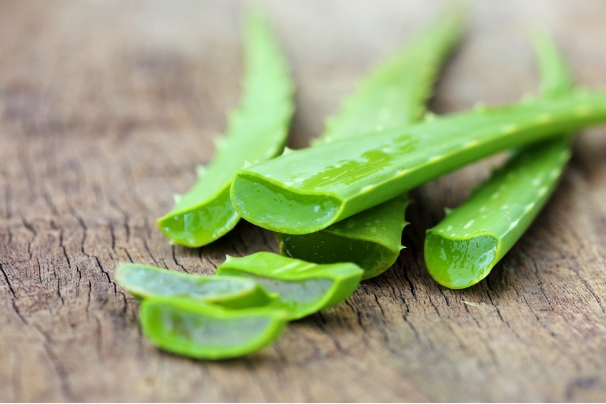
You can use aloe vera gel and apply it to your affected gums. Cut open and extract the gel from an aloe vera leaf and apply it to the gums. Rinse your mouth with water after applying aloe vera.
The antifungal and antibacterial properties in aloe vera can be effective in the treatment of gingivitis. As a result, aloe vera leaf gel or juice can prevent the accumulation of bacteria that causes plaque buildup and eventually gingivitis. Aloe vera can also soothe inflamed gums and teeth and relieve pain. You can use aloe vera gel and apply it to your affected gums. Cut open and extract the gel from an aloe vera leaf and apply it to the gums. Rinse your mouth with water after applying aloe vera.
8. Cloves
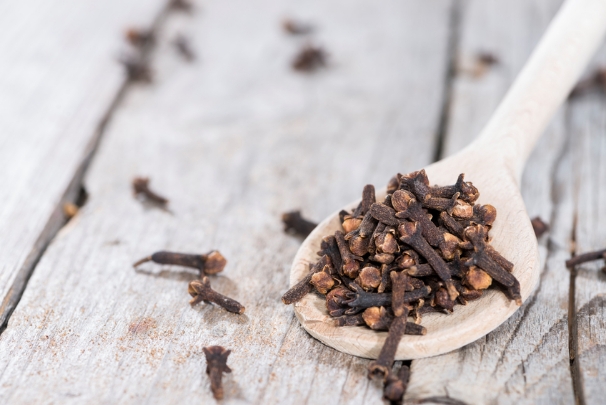
Twice daily you can rub cloves on your gums, and leave them there for a few minutes before rinsing them out with warm water.
Cloves are also a strong anti-inflammatory, analgesic, antiseptic, and antioxidant remedy for gingivitis. You can simply chew two to three cloves, three times a day. Also, twice daily you can rub cloves on your gums, and leave them there for a few minutes before rinsing them out with warm water. Alternatively, add a few clove oil drops into a glass of warm water, and rinse your mouth with the solution two to three times per day.
9. Tea Tree Oil Mouth Rinse
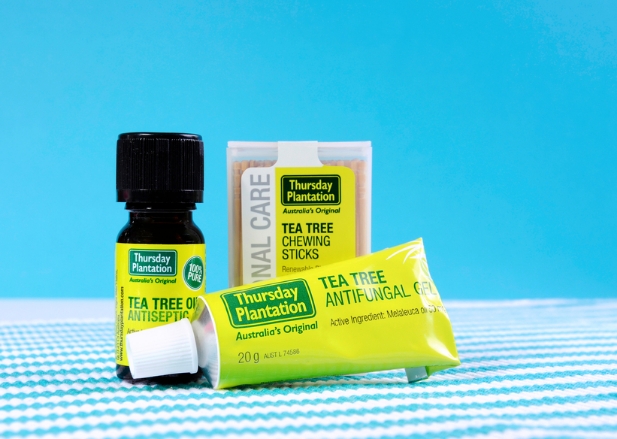
Tea tree oil can be made into toothpaste for daily brushing, or you can add it to your regular toothpaste.
Tea tree oil is almost always used for conditions of the mouth due to its antifungal, anti-inflammatory, and antibiotic properties. As a result, tea tree oil can treat the irritation and inflamed gums of chronic gingivitis. In a study published in the European Journal of Dentistry in 2013 (4), researchers found that tea tree oil was an effective antiseptic and antimicrobial remedy against oral pathogens. Tea tree oil can be made into toothpaste for daily brushing, or you can add it to your regular toothpaste.
10. Gotu Kola Tea
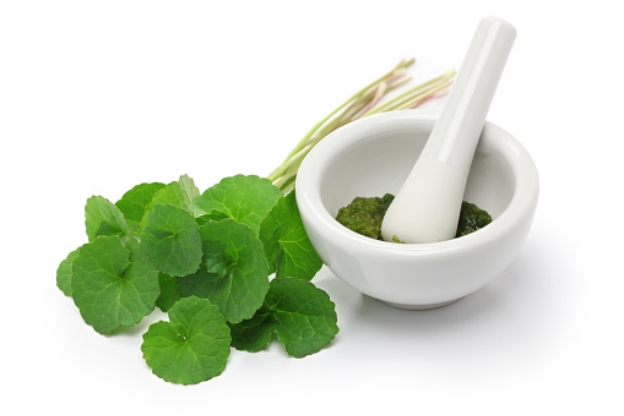
To make the tea, add a couple of teaspoons of Gotu kola extract to boiling water. Drink it once in the morning and once at night to help improve your mouth health.
The triterpenoids in gotu kola contain potent wound-healing properties that can treat severe periodontal disease or gingivitis. Studies have found that gotu kola extract was helpful in increasing recovery after laser surgery for severe periodontal disease. To make the tea, add a couple of teaspoons of gotu kola extract to boiling water. Drink it once in the morning and once at night to help improve your mouth health.
Other Natural Remedies for Gingivitis
Other home remedies for gingivitis and periodontitis include peppermint, sage, bloodroot, olive oil, neem oil, grape seed extract, pine bark extract, vitamin C with bioflavonoids, and calcium. Other methods for how to treat gingivitis include probiotics, essential fatty acids, betaine hydrochloride, green tea, folic acid mouthwash, and coenzyme Q10. It’s also a good idea to take an ACES plus zinc supplement (ACES stands for vitamins A, C, and E, plus selenium). There are also homeopathic remedies that may help treat gingivitis such as silicea, phosphorus, mercurius solubilis, and kreosotum.
Here’s something else to think about: what if the gingivitis you need to cure isn’t in your mouth, but your child’s? It can be difficult to clean a young child’s teeth, as they can be notoriously squirmy, but they need to learn proper oral hygiene. Home remedies for gingivitis in toddlers mostly involve teaching them proper brushing techniques and ensuring that their diets contain lots of healthy choices—staying away from foods that increase bacteria or cause decay is vital.
Turmeric Mixture for Gingivitis
As mentioned, turmeric is an exceptional natural anti-inflammatory that can be used as a home remedy for a gingivitis gum infection. Here is a quick turmeric recipe to treat gingivitis:
Ingredients
- 4 tsp turmeric powder
- 8 tsp neem powder
- ¼ tsp alum powder
- ¼ tsp Celtic grey sea salt
Directions
- Combine all the ingredients, and mix them well before storing in an airtight container.
- For use, take out the powder mixture and rub on your gums and teeth. Use it two to three times daily, and before you brush your teeth.
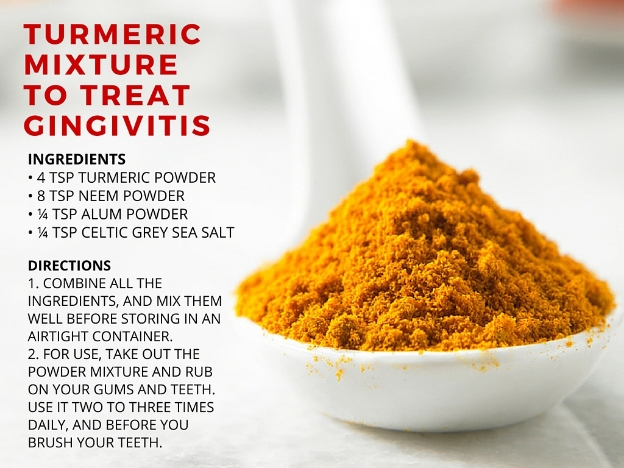
How to Prevent Gingivitis
So, now that these home remedies for gingivitis have helped successfully treat the condition… what do you do? What if it comes back? Here are some tips to help prevent gingivitis from returning:
-
Make dietary changes:
Limit sugar-containing foods, which feed the bacteria that accumulate on the teeth and gums. Diet should mostly focus on whole foods such as vegetables, seeds, nuts, fresh vegetable juices, and foods with essential fatty acids such as fish or flaxseed.
-
Proper dental hygiene:
Regular dental checkups are important. In the time in between visits, it’s important to brush your teeth and floss two to three times daily. After brushing your teeth, it’s also a good idea to scrape your tongue at least twice a day. And you should change your toothbrush every three months.
-
Use proper mouthwash:
Not all mouthwashes are effective. Use one with antibacterial essential oils such as thyme, peppermint, lavender, cinnamon, and eucalyptus.
-
Quit smoking:
Studies have found that smokers are four times more likely to have gingivitis and other serious gum diseases, because smoking affects blood flow.
Read Next:
